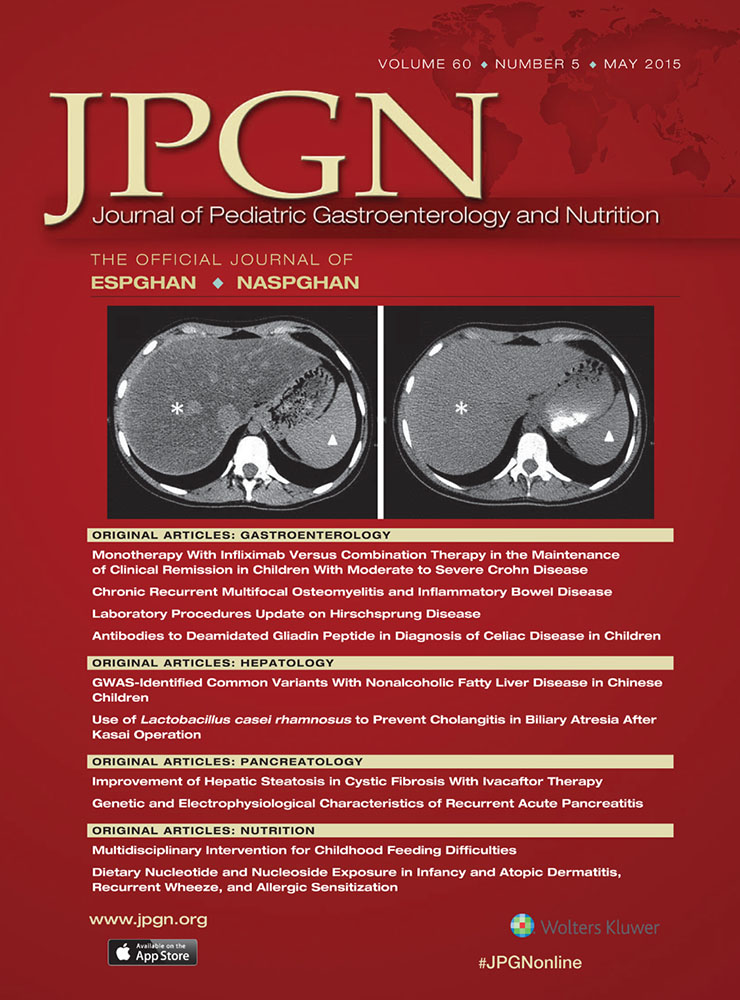Antibodies to Deamidated Gliadin Peptide in Diagnosis of Celiac Disease in Children
This article has been developed as a Journal CME Activity by NASPGHAN. Visit: http://www.naspghan.org/content/59/en/Continuing-Medical-Education-CME to view instructions, documentation, and the complete necessary steps to receive CME credit for reading this article.
The study was supported by grants from the Finnish Coeliac Society, Finnish-Norwegian Medical Foundation, Finnish Cultural Foundation, Oscar Öflund Foundation, Finland, Juvenile Diabetes Research Foundation International, Sigrid Juselius Foundation, Finland, Päivikki and Sakari Sohlberg Foundation, Finland, and Special Research Funds for University Hospitals in Finland.
The authors report no conflicts of interest.
ABSTRACT
Objectives:
Determination of antibodies to synthetic deamidated gliadin peptides (anti-DGPs) may work as an alternative or complement the commonly used test for tissue transglutaminase antibodies (TGA) in the diagnosis of celiac disease (CD). We analyzed the performance of a time-resolved immunofluorometric anti-DGP assay (TR-IFMA) in the diagnosis of CD in children and also retrospectively analyzed the appearance of anti-DGP antibodies before TGA seroconversion.
Methods:
The study included 92 children with biopsy-confirmed CD. Serum samples were taken at the time or just before the clinical diagnosis. The control group comprised 82 TGA-negative children who were positive for human leucocyte antigen-DQ2 or -DQ8.
Results:
Based on receiver operating characteristic curves, the optimal cutoff value for immunoglobulin (Ig) A anti-DGP positivity was 153 arbitrary units (AUs) with a sensitivity of 92.4% and specificity of 97.6% and that for IgG anti-DGP 119 AU, with a sensitivity of 97.8% and specificity of 97.6%. All 92 children with CD were either IgA or IgG anti-DGP positive at the time of diagnosis. Sera from 48 children with CD were also analyzed retrospectively before the diagnosis. Anti-DGP antibodies preceded TGA positivity in 35 of the 48 children with CD and appeared a median of 1 year earlier.
Conclusions:
The TR-IFMA assay for detecting anti-DGP antibodies shows high sensitivity and specificity for the diagnosis of CD in children. In a majority of our study population, anti-DGP seropositivity preceded TGA positivity, indicating that earlier detection of CD may be possible by monitoring anti-DGP antibodies frequently in genetically susceptible children.




